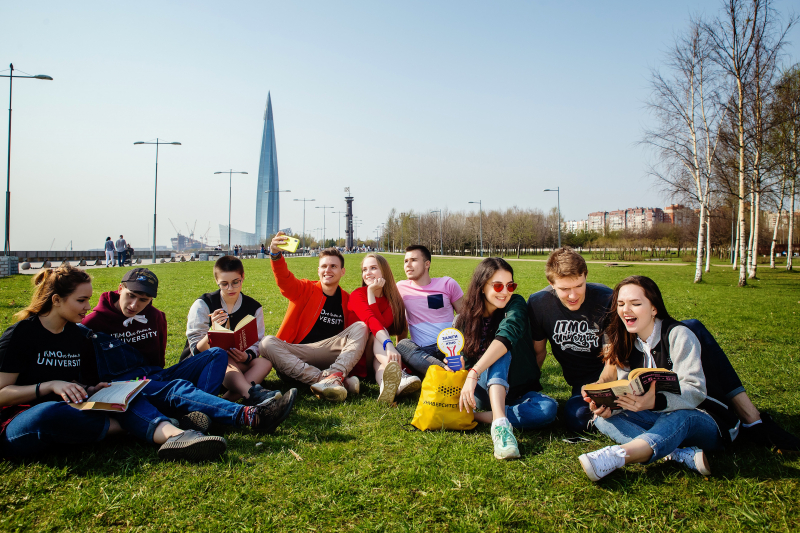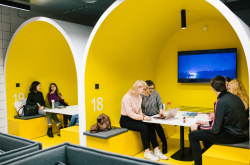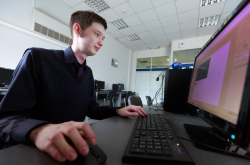The company’s staff take an active part in the educational process. They serve as experts, teachers, and even curators. Students of the program get to contribute to the center’s research, as well as put their knowledge into practice at mining sites and labs. Moreover, the best students receive an enhanced stipend from the university's partner.
In this article, the first-ever students of the program speak about why they decided to apply, what they learned over the past academic year, and what they expected from their studies.
Roman Romanov
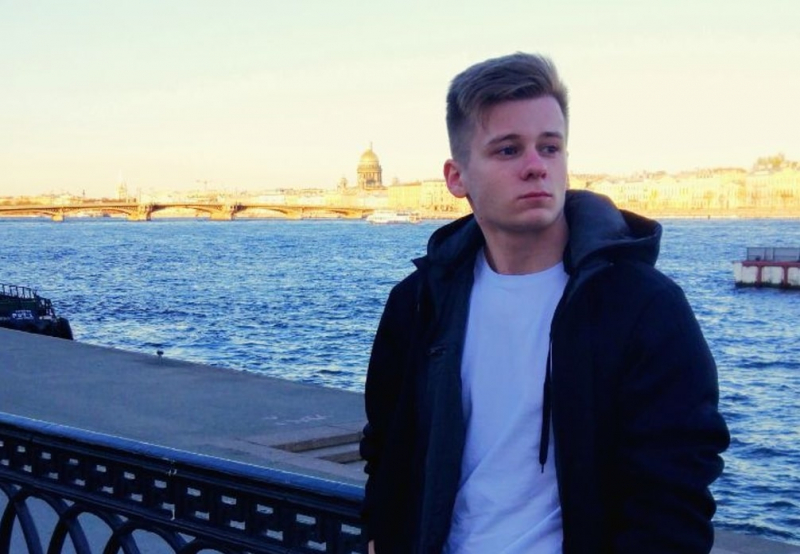
Roman Romanov. Photo courtesy of the subject
At the moment, I’m studying cement slurries that strengthen pipesin wells. As current technologies and materials are not flawless, I’m trying to find the best possible solutions to this problem. Perhaps, this will become the topic of my Master’s thesis.
I’m from a small town in Siberia, which can be called one of the major producers of oil and gas in Russia. When I finished school, I had to decide on my career path. That’s how I got into St. Petersburg Mining University and started studying oil and gas.
After graduation, I could go back home and become a gas and oil operator. It was the easiest way to start my career. Besides, I gained a background in this field during my third year of studies. But it was too easy and I already dreamed about staying in St. Petersburg.
I began to look up universities on New Year’s Eve. My Bachelor’s thesis was about compounds that prevent water ingress. While working on it, I was particularly interested in studying materials from a perspective of a person who can define possible chemical reactions and component interactions, the influence of reservoir conditions, as well as business processes occurring at all production stages.
My friend told me about ITMO and how this university always holds leading positions in various rankings. So, I decided to learn more: studied the university’s website, news, specializations, as well as the opportunities it offers. In doing so, I stumbled upon an article about the launch of the new joint program between ITMO and Gazprom Neft.
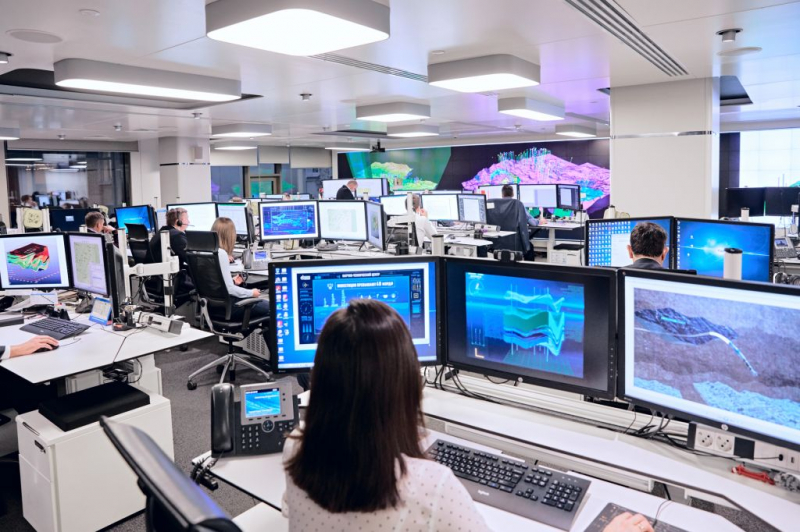
Gazprom Neft Science and Technology Center. Credit: ntc.gazprom-neft.ru
This truly is a comprehensive course allowing you to fully focus on your research and theses. The company holds different activities for the students. Hardly a week passes without a visit to museums, planetariums, or exhibitions. Not long ago, I took part in the third educational conference called We are in the Future where I spoke about collaborations between businesses and universities. One of my supervisors believes that if you want to get the hang of some field, you need to get inside its processes. Here my background came in real handy.
Now, I’m lucky to do my internship at one of the deposits in Western Siberia. I got this amazing opportunity thanks to my university.
Students can expand their horizons not only on tours. The company invites all students to take full advantage of a specially developed ed platform with an extensive list of libraries and training materials. Thus, we can educate ourselves and acquire new skills and knowledge.
The university management, together with Gazprom Neft representatives, has developed courses aimed at ensuring that students gain the necessary competencies for their future careers. Such programs should help to reduce an adaptation period for newcomers, which now can take six months or a year. Lectures are delivered by both university employees and specialists. Thanks to this practice, students can not only encounter different perspectives but also gain genuine business insights. Also, each student gets a supervisor (or a mentor) who invites them to try their hand at one or several real-life projects. There are currently seven people in my group, and each is part of some research, be it hydrate formation or heavy oil deposits.
After graduation, I’d like to join the company and continue to build on the prospects of tight oil production and improve its performance.
Elena Galasheva
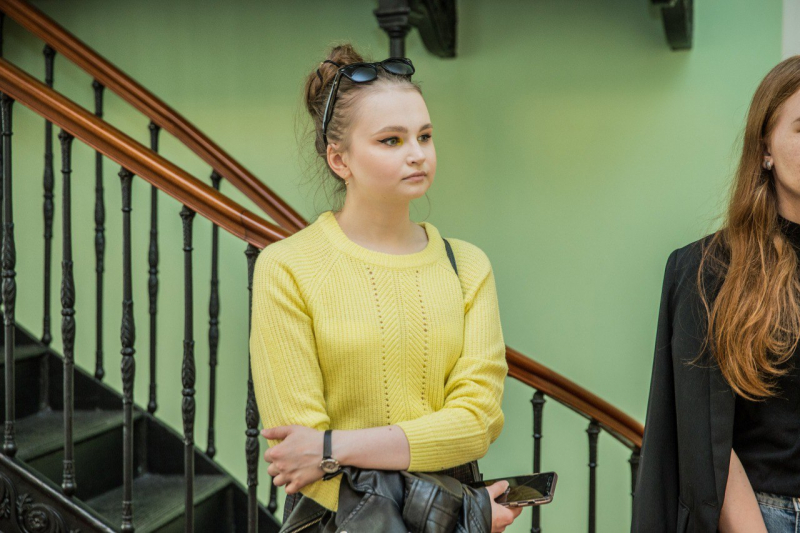
Elena Galasheva. Photo courtesy of the subject
I choose this program because I graduated from ITMO with a Bachelor’s degree in a similar field and I wanted to continue my studies here.
After I thoroughly studied the programs’ curricula, the choice fell on Modern Aspects of Oil and Gas Engineering. Of course, I was driven by the idea of working at one of the world’s top companies. I was determined to pursue science and get into Gazprom Neft. And an extra stipend from the company was a pleasant bonus.
To enroll, applicants had to undergo a selection process. Frankly speaking, I was afraid that I would not get in because many other students had backgrounds that were more preferred than mine. Yet I decided to keep fighting – and it paid off.
The curriculum includes core, specialized, and optional disciplines. The core set of disciplines is divided into several modules. ITMO students have the opportunity to choose subjects they’ll like to study within each module and thus create their own individual learning tracks. Because of that, I got to make my curriculum more efficient and exciting.
As for specialized subjects, I only had a course on the fundamentals of the oil and gas industry. We studied the theories of oil and gas origin, the history of the industry in Russia and abroad, core terminology, the fundamentals of geology, drilling, wells development, and so on. During practical classes, we got to examine reagents from the field and found out how they got approved to be used in production. I think it’s great that our teachers are both from the company and university.
The key advantage of the specialization is an unconventional way of teaching theory. Students not only have lectures at the university but also have the chance to participate in numerous excursions on related topics. For example, there was a tour of the Nobel family’s sites in St. Petersburg. Also, our group got to visit the Mining Museum and the Tsifergauz Center for Digital Transformation (Gazprom Neft).
As of right now, I'm doing my internship at the Gazprom Neft Science and Technology Center. I get to know how everything works here and help with different tasks. Plus, my research is carried out within one of the center’s agreements.
Thanks to my work at the company and the university’s labs, I know what I’m going to do next. Hopefully, this experience will give a great boost to my career at Gazprom Neft.
Evgenia Lebedeva
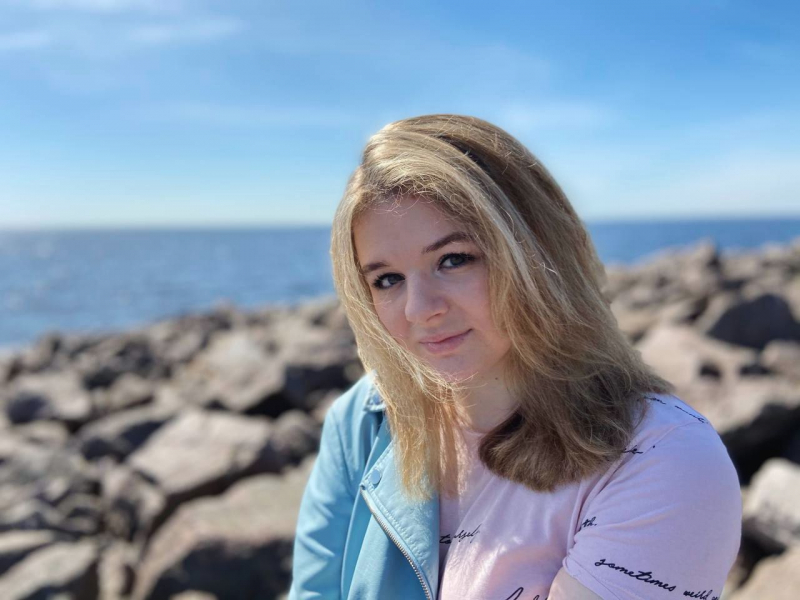
Evgenia Lebedeva. Photo courtesy of the subject
My research is devoted to the efficiency of corrosion inhibitors. I want to figure out how adhesion can affect their performance.
I studied at St. Petersburg Mining University. At first, I wanted to change the university and leave it for ITMO. Then, I considered applying for a different specialization as I saw no prospects in this field. I had no desire to study oil and gas, so I started to search for something else. That’s how I found ITMO and this program. Another perk was that I could get into the university without taking any exams.
To be honest, I had no idea what this specialization was about. I wanted to change my program, learn something new, and find a good job in St. Petersburg.
The program focused on the oil and gas sector and production. We got to work in modern labs with samples and reagents provided by the company. And unlike my past experience, we spend a lot of time working independently.
We had the chance to intern at one of the subsidiaries of Gazprom Neft. We helped with documentation and ran some errands at labs. There, I joined the project on complex inhibitors effective against corrosion and hydrates. So, I’m now dealing with a similar topic that I studied at the Mining University.
Gazprom Neft contributes to the program a lot. We had multiple classes that were delivered by the company’s employees. They don't just read lectures but share their work experience. There are also special online courses and a larger stipend for the students.
Surely, I’d like to continue this cooperation. We already started to get a sense of the company and its activities. So, I’d like to pursue my career here.
Ekaterina Chikalova
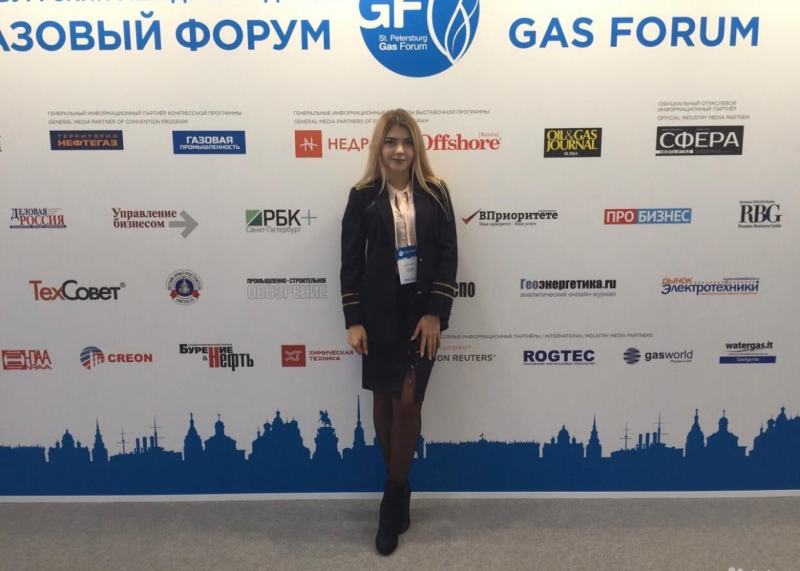
Ekaterina Chikalova. Photo courtesy of the subject
I’m an intern at the Gazprom Neft Science and Technology Center. Here, we are actively involved in the center’s activities. For instance, I’m working on a project dealing with the automation of oilfield chemistry. My main task is to compile reporting forms for experimental-industrial trials.
Our program includes a wide range of outdoor opportunities. This spring, for example, we had a city tour about the Nobel family in St. Petersburg.
Initially, I was supposed to do my internship for a few months but now I’m going to stay at the company till December. So far, I don’t know whether it’ll be difficult to combine an internship with studies or not.
At the university, we have a module-based system. That is, we study a certain subject for two-to-three weeks, take exams, and then start to study another discipline. Generally, there is a two-to-three week break between different modules, so I hope that I’ll make it work.
